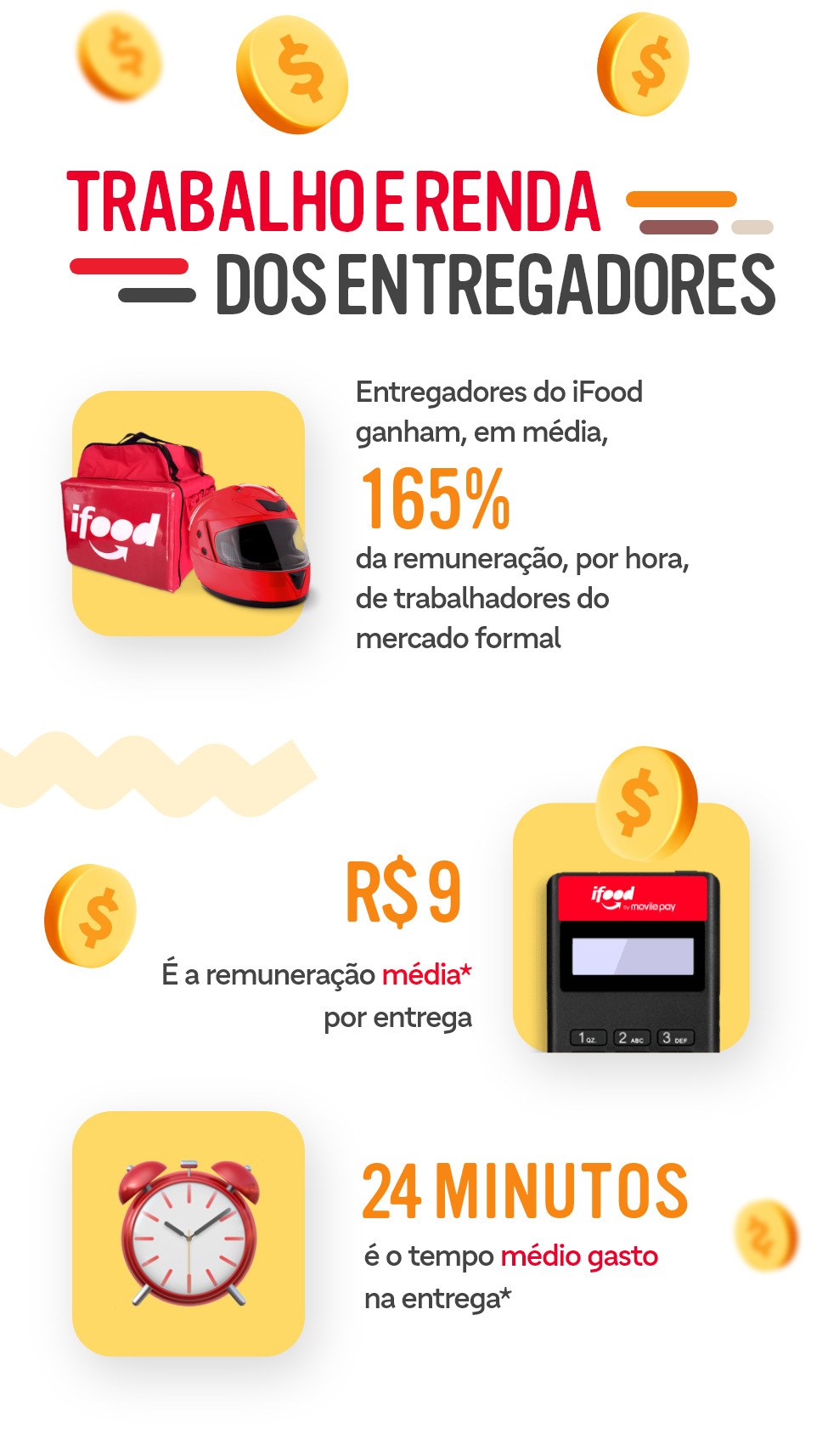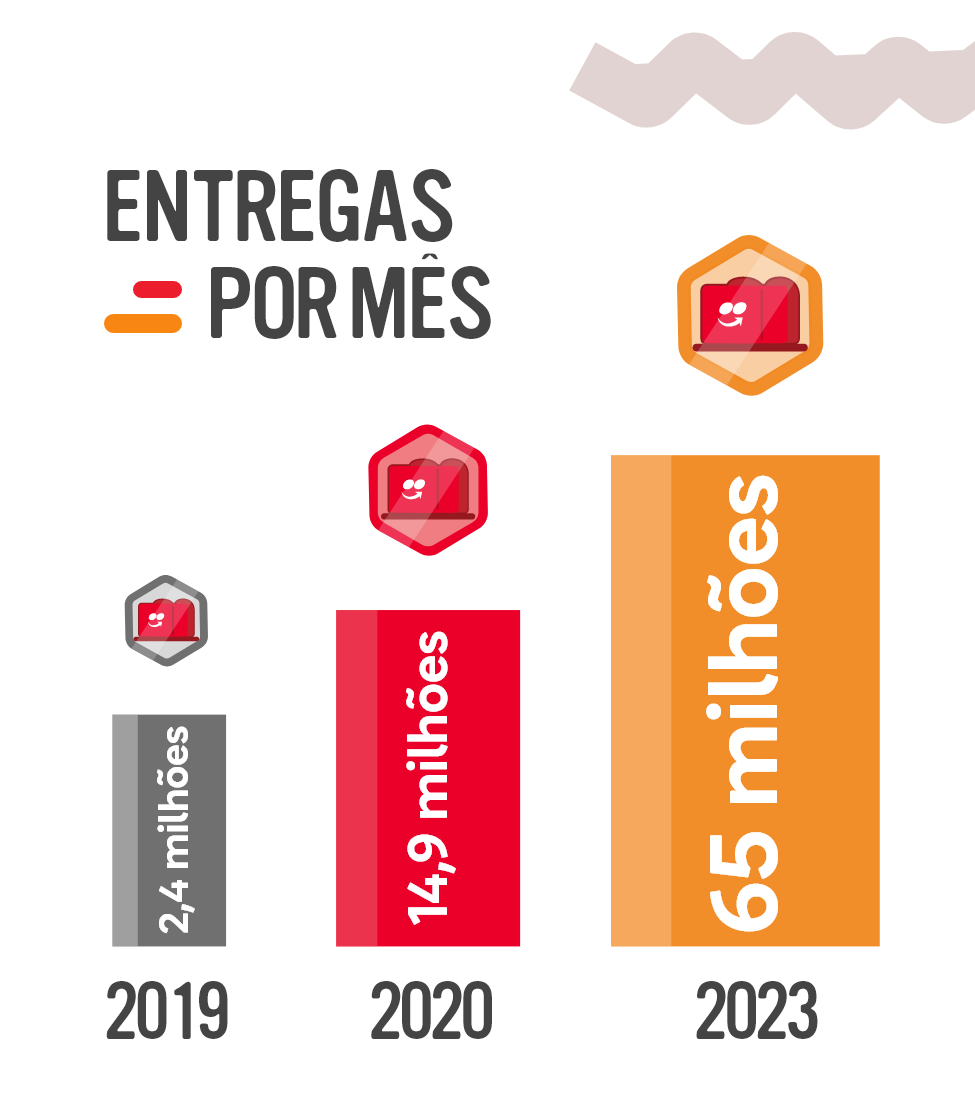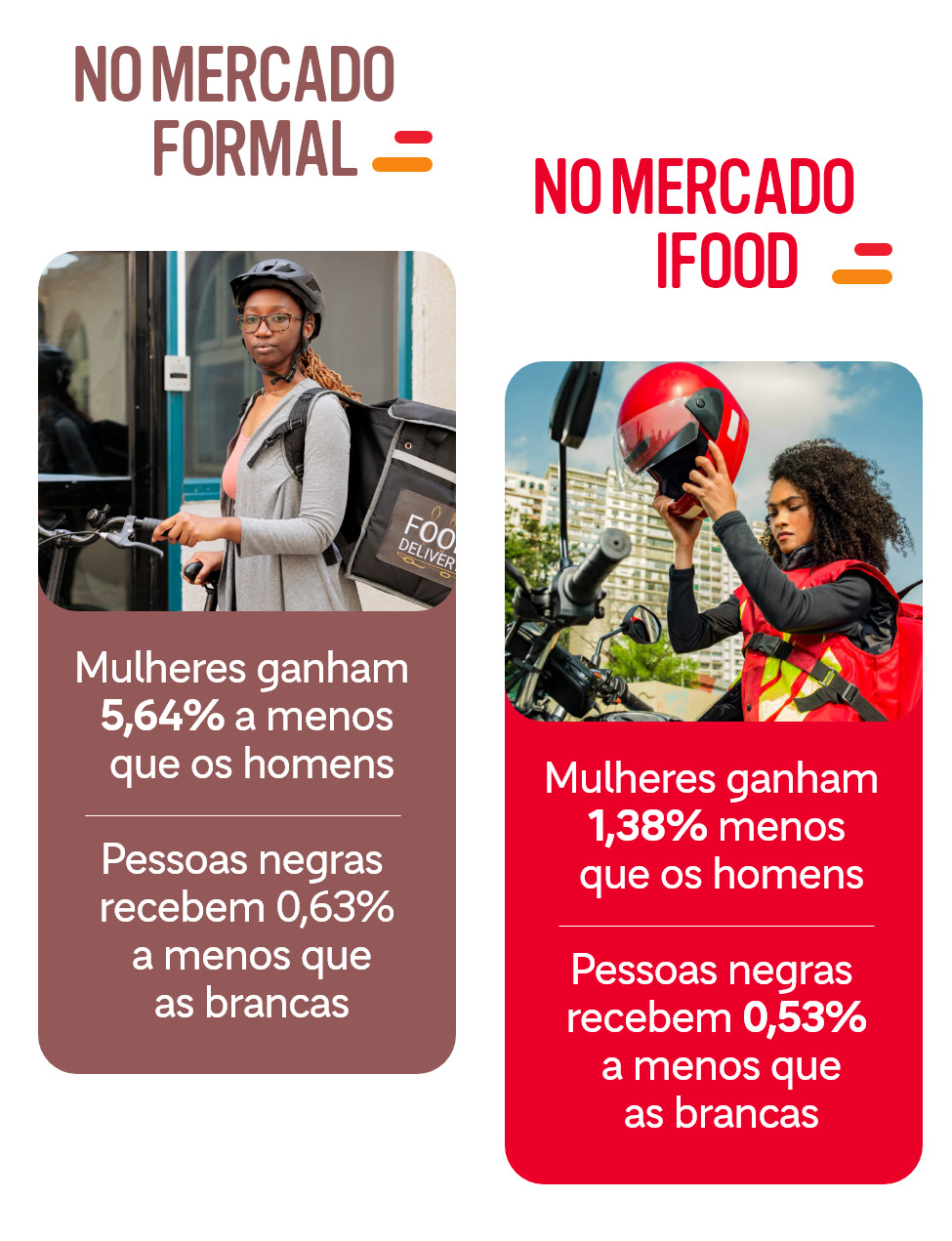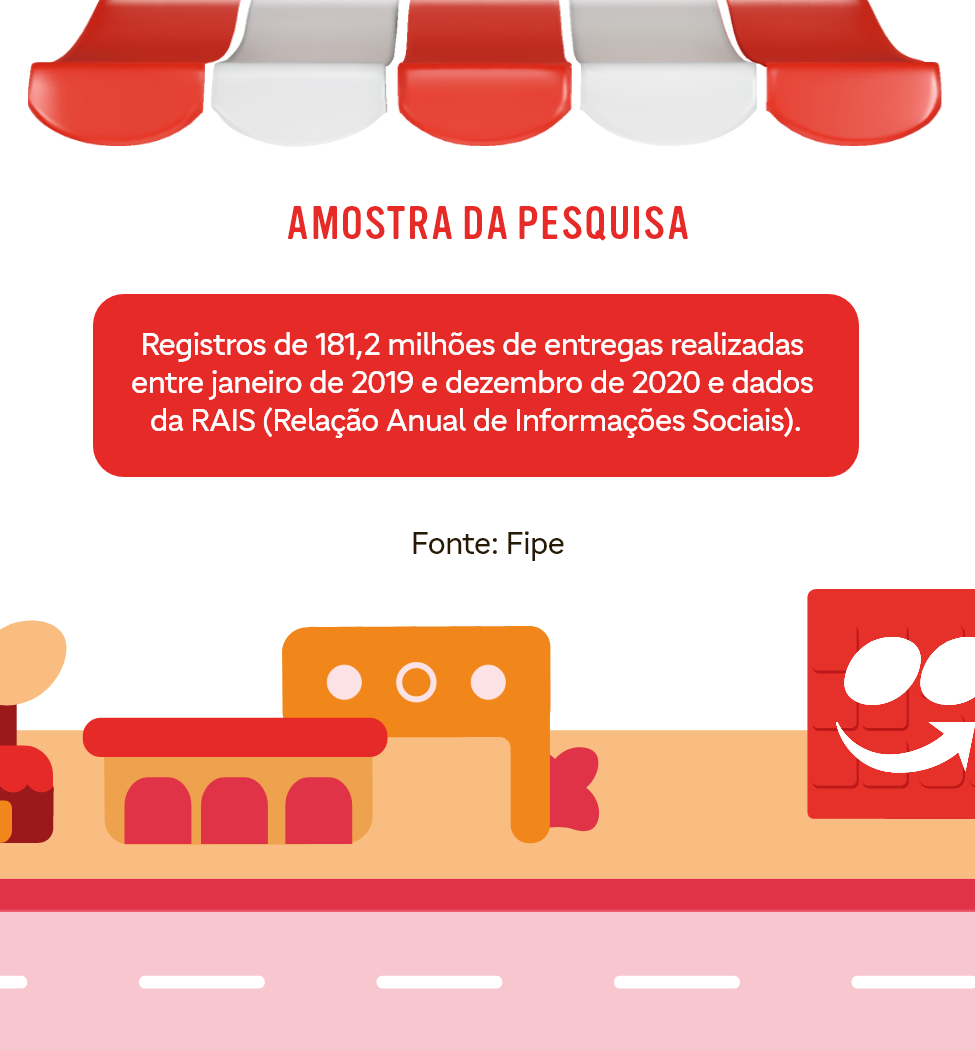Download the Fipe survey here
Delivery men and women who work in platform iFood employees earn, on average, 165% per hour of the remuneration of those who work in the formal job market, under the CLT (Consolidation of Labor Laws) model.
This is one of the results of research “Socioeconomic Impacts of iFood Operations in Brazil: Analysis of Delivery Drivers”, carried out by Fipe (Fundação Instituto de Pesquisas Econômicas) in 2021.




This study compared the earnings of these delivery people per hour worked — while they are fulfilling orders — with those who work in the formal model (CLT). And it was based on records of 181.2 million deliveries made between January 2019 and December 2020 and under the responsibility of iFood, in cloud mode.
Delivery people who work in marketplace modality they were not evaluated because iFood does not have data about them.
Earnings were estimated this way because delivery people, when they are idle, even when logged into the iFood app, can dedicate themselves to other productive and paid activities—including deliveries via other platforms.
To incorporate information about workers in traditional formal jobs, Fipe compiled data from the Annual Social Information List (RAIS) between 2014 and 2019.
Less discrimination in earnings
Another conclusion of the Fipe study is that, in gig economy, pay disparities related to gender and race differences are mitigated. Among those who deliver via iFood, the profit differentials in relation to these variables are smaller than in the formal market.
In the formal market, women in the sample earned, per hour worked, 5.64% less than men. Black people, in turn, received 0.63% less than white people. On the iFood platform, women's income was 1.38% lower, and women black people received 0.53% less than white women.

